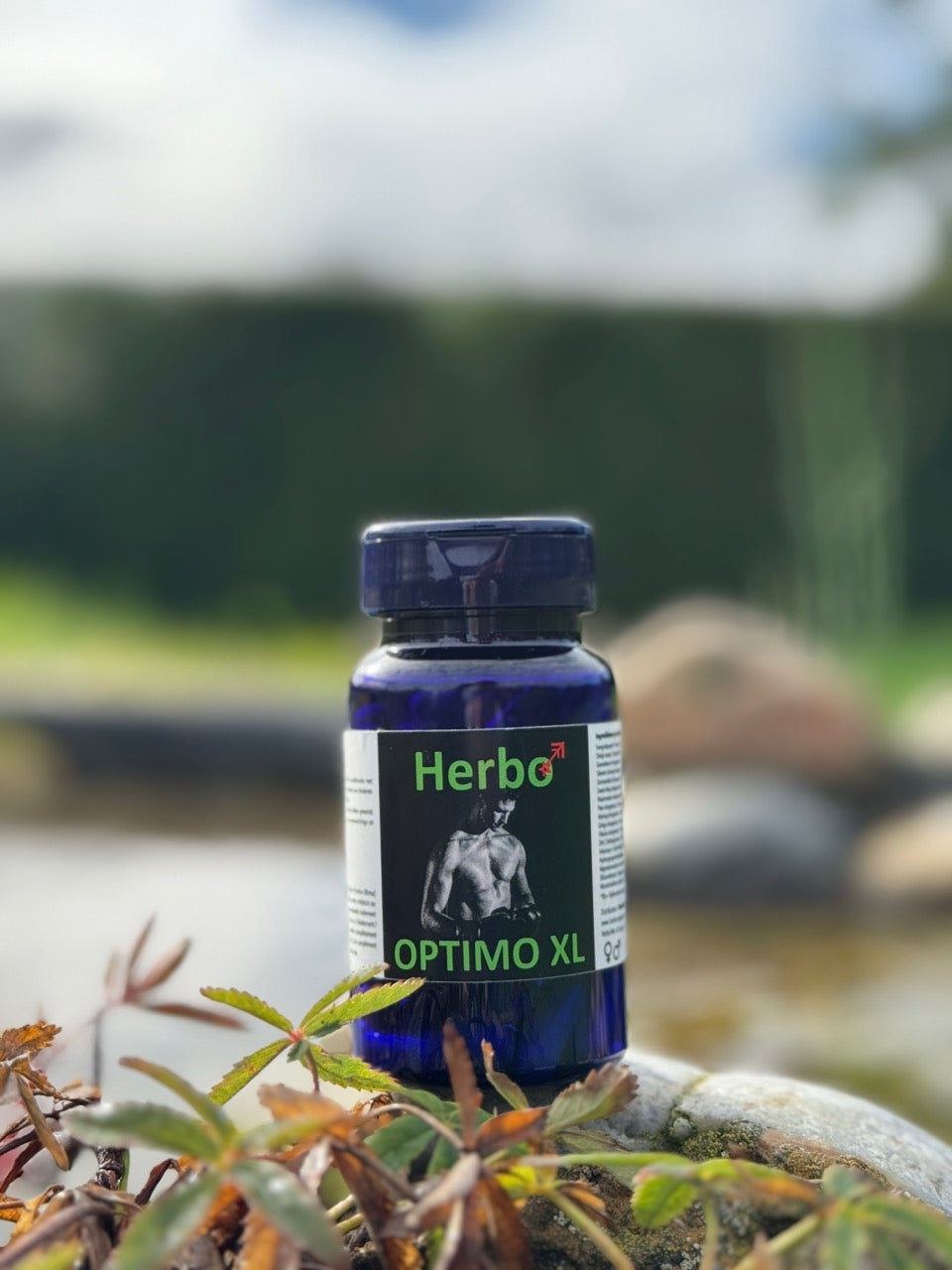Ginkgo
Biloba

Ginkgo biloba,
This Chinese plant extract is known for its effect on attention and memory. But maybe you heard about this dietary supplement in connection with dementia and Alzheimer's? Online, you can find many health claims about ginkgo biloba. We separate the wheat from the chaff and list for you which benefits of using ginkgo biloba are supported by scientific research.
Contents of this article
- What is ginkgo biloba?
- Gezondheidsclaims gingko biloba
- Effect of ginkgo biloba extract
- # 1. Increased blood flow and improved heart health
- # 2. Packed with antioxidants
- # 3. Anti-inflammatory
- # 4. Plays a role in how neurotransmitters work in the brain
- # 5. Protects the brain
- # 6. Memory and Attention
- Benefits of ginkgo biloba for specific medical conditions
- #7. Dementia and Alzheimer’s Disease
- # 8. Schizophrenia
- # 9. Reducing Side Effects of Antidepressants
- # 10. Headache and Migraine
- # 11. PMS
- # 12. Asthma and COPD
- # 13. Eye Health
- Dosage and Possible Side Effects of Ginkgo Biloba
- Dosage
- Possible side effects
- The conclusion
What is ginkgo biloba?
Ginkgo Biloba is an ancient, incredibly resilient tree species. This living fossil has existed for over 300 million years. An individual tree can live up to a thousand years and reach 40 meters in height.
The seeds of the ginkgo biloba look like fruit and have an unpleasant odor. However, their contents are considered a delicacy in Japan and China. 'Ginkgo' is said to mean 'silver apricot,' while 'Biloba' relates to the two-lobed shape of the leaf.
Another name for ginkgo biloba is the ‘maiden hair tree’. This refers to the hair-like leaf structure. In Japan, the tree symbolizes love, hope, constancy, timelessness, and longevity. In traditional Eastern medicine, the leaves and seeds of the tree have been used for thousands of years to support health. For example, at the end of the 11th century, it was recorded how ginkgo seeds, leaves, and nuts were used for dementia, asthma, sourcechitis, and kidney and bladder disorders.
Already a few hundred years ago, ginkgo biloba extract from the dried leaves also gained acceptance in the West.
Gezondheidsclaims gingko biloba
A quick search on the internet immediately yields a range of health benefits attributed to ginkgo biloba. It is said to:
- The mental health (e.g., anxiety, depression, schizophrenia) influence.
- Improving memory in Alzheimer’s Disease and dementia.
- Improve blood flow to the brain and other organs, regulate blood pressure, reduce altitude sickness and erectile problems.
- Used for fatigue, neuropathy, asthma, PMS, macular degeneration.
- Increasing concentration with ADHD.
Like many natural remedies, there is relatively little research for many of the conditions for which ginkgo biloba is used. Some studies contradict each other. The easiest starting point is what science has taught us so far about the effects of this popular supplement.
Effect of ginkgo biloba extract
1. Increased blood flow and improved heart health
Ginkgo biloba is used in traditional Chinese medicine to open the energy channels to vital organs such as the liver, kidneys, brain, and lungs. Contemporary research shows that blood flow improves in the elderly. Additionally, researchers measured a 12% increase in nitric oxide in the bloodstream, which causes the blood vessels to dilate. Ginkgo extract promotes blood circulation in the hands, legs, and brain. This supports better memory and concentration. It also strengthens blood vessel walls and improves the condition of the vascular system. The anti-inflammatory properties of the plant play an important role in this.
Regarding blood pressure regulation, the large-scale Ginkgo Evaluation of Memory (GEM, 2008) study found no decrease in blood pressure and no reduction in the risk of a heart attack. Ginkgo extract was found to be effective in reducing peripheral vascular disease (narrowing of blood vessels in the legs) caused by poor blood circulation (bron).
2. Packed with antioxidants
Ginkgo biloba is rich in antioxidants, which is beneficial for combating cell aging. It contains flavonoids and terpenoids that provide a strong antioxidant effect. Antioxidants neutralize the effects of free radicals – the reactive particles released during normal metabolic processes (such as digestion) – and thus help maintain healthy tissue.
3. Anti-inflammatory
The anti-inflammatory response is part of our body's natural defense system. Animal and laboratory studies show that ginkgo biloba reduces inflammation in both human and animal cells in various diseases. As a result, ginkgo biloba extract may be useful for conditions such as arthritis, irritable bowel syndrome (IBD), cancer, heart disease, and heart attack.
4. Plays a role in how the neurotransmitters in the brain function
To date, there is insufficient research to conclusively demonstrate the effect on mental health (such as anxiety, stress, and memory). Ginkgo supplements may enhance mental performance and well-being, although there is no measurable effect on memory and executive functions. Animal studies suggest that the extract reduces symptoms of anxiety, primarily due to its antioxidant effect. Additionally, it decreases the secretion of stress hormones. In studies with people suffering from generalized anxiety disorder (GAD), administration of ginkgo extract led to a 45% reduction in anxiety symptoms. In the area of depression, animal research has also shown that ginkgo, through its anti-inflammatory effects, may help manage high cortisol levels. Furthermore, it reduced the activity of monoamine oxidase (MAO) and increased dopamine and serotonin levels in the prefrontal cortex.
5. Protects the brain
Interest in the brain-protective effects of ginkgo biloba extract has recently increased. Research shows that ginkgo extract inhibits the inflammatory response and programmed cell death (apoptosis). Additionally, it regulates the amount of protein precursors in neuronal synapses and increases cell growth in the hippocampus (a brain region that plays an important role in memory and learning). The mechanism involves addressing free radicals, improving mitochondrial function, reducing blood viscosity, and regulating serotonin and dopamine levels.
6. Memory and attention
Different studies confirm the positive effect of ginkgo biloba extract on cognition and age-related problems with memory and attention – both in healthy individuals and in people with Alzheimer's. The effect on memory is attributed to increased blood flow to the brain, the antioxidant effect that protects against the breakdown of brain fats, more optimal use of oxygen and sugar by brain cells, and the reduction of amyloid plaque formation in the gray matter of the brain.
A scientific review also found a positive effect on attention and concentration in ADHD and autism, although more research is needed. Furthermore, the active substances in the extract, such as ginkgolide and bilobalide, respectively increase blood flow and reduce anxiety.
Benefits of ginkgo biloba for specific medical conditions
7. Dementia and Alzheimer’s Disease
Previous research on the effect of ginkgo biloba extract for the prevention or treatment of dementia often yielded conflicting results. The large-scale GEM study (2008) found no preventive effect on dementia and Alzheimer’s, while a meta-analysis in 2012 showed no positive effect on the cognitive functioning of healthy individuals. A later study did show benefits for people with Alzheimer’s who were using cholinesterase inhibitors. A scientific review of 21 studies indicated that ginkgo extract in combination with conventional Alzheimer’s medication significantly improved functional abilities in mild Alzheimer’s after 5-6 months of use. Other reviews also confirmed that a dose of 240 mg of ginkgo extract per day for 22 to 26 weeks delayed the decline in cognition, function, behavior, and global changes, especially in patients with neuropsychiatric symptoms. A recent meta-analysis (1980-2020) confirmed improvement in mental functioning in patients with mild dementia after using this dosage for more than 24 weeks.
8. Schizophrenia
A systematic scientific review from 2013 reports a beneficial effect of ginkgo biloba extract on positive psychotic symptoms (such as delusions and hallucinations) in people with schizophrenia who are already using antipsychotics.
9. Reduction of antidepressant side effects
Ginkgo extract can reduce erectile dysfunction, which is sometimes caused by antidepressants (SSRIs). Although these results are not consistently confirmed, other research suggests that the extract may also help with sexual problems in women – such as low libido – provided it is combined with sexual psychotherapy.
10. Headache and migraine
In traditional Chinese medicine, ginkgo is used against headaches. The effectiveness depends on the cause of the headache and the extent to which the anti-inflammatory or antioxidant properties of ginkgo are able to counteract excessive stress, limited blood flow, or narrowed blood vessels.
11. PMS
Ginkgo biloba extract can reduce premenstrual syndrome (PMS). From research showed a 23% decrease in PMS symptoms.
12. Asthma and COPD
Due to its anti-inflammatory effect, ginkgo can be beneficial for asthma. Research shows that ginkgo contributes to reduced airway inflammation and increased lung capacity when used in combination with asthma medication. In chronic obstructive pulmonary disease (COPD), a mix of Chinese herbs, including ginkgo, led to less coughing and bronchitis. Although this is promising, more research is needed to determine the exact effect of each component.
13. Eye Health
Ginkgo biloba extract has also been tested for its effect on eye health. In glaucoma, it improved blood flow to the eye, although this did not always lead to immediately better vision. In macular degeneration, a condition where the area in the eyeball responsible for sharp vision is affected, the supplement did show improvement.
Dosage and Possible Side Effects of Ginkgo Biloba
Dosage
The most commonly used dosage in research is 240 mg per day. Moderate, standard use of ginkgo biloba plant extract is considered safe. Note: fresh ginkgo seeds and unprocessed ginkgo leaves are toxic and therefore not suitable for consumption. Ginkgo biloba is also not recommended for pregnant or breastfeeding women, as safety research is lacking and it may increase the risk of bleeding.
Possible side effects
Ginkgo biloba can cause gastrointestinal discomfort, nausea, vomiting, diarrhea, headache, dizziness, palpitations, rash, and restlessness. There is an increased risk of bleeding, so it is advisable to stop using ginkgo two weeks before a medical procedure. Additionally, it can lower blood sugar levels, which requires extra attention in people with diabetes or hypoglycemia. Negative interactions with other medications can also occur, as well as allergic reactions in some cases, such as a ginkgo pollen allergy similar to allergies to urushiols (as found in Poison Ivy, mango skin, and cashew nuts).
The conclusion
Het plantenextract ginkgo biloba kan veilig worden gebruikt als supplement, bij een dosis van 240 mg per dag. Hoewel meer wetenschappelijk onderzoek welkom is, is er reeds evidentie voor de volgende positieve effecten:
- Improvement of blood flow and cardiovascular health
- Antioxidant effect
- Anti-inflammatory effect
- Regulation of neurotransmitters
- Brain protection
- Improvement of memory and attention
In addition, positive results have been achieved for specific medical conditions such as:
- Dementia and Alzheimer's Disease
- Schizophrenia
- Reduction of side effects of antidepressants
- Headache and migraine
- PMS
- Asthma and COPD
- Eye Health



